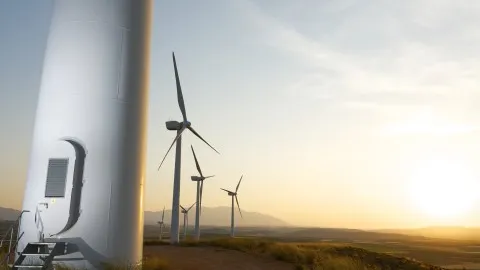
Japan’s clean energy transition lags behind G7 states
Its generation from the wind sector is less than 1% of the total electricity.
Japan is falling behind other G7 countries in terms of the clean energy transition, with renewable sources accounting for only 29% of its total electricity and 71% from fossil fuels, according to a climate and energy think tank.
In a report, Ember said that Japan also has the highest share of coal in its total generation at 33% amongst the G7 countries for the fourth consecutive year.
Particularly, the growth of the wind sector in Japan is behind the other countries as the sector generated only less than 1% of its electricity. Solar on the other hand is faring better, increasing its share from zero to 10% in the last decade.
READ MORE: Japan close to hitting 2030 renewables target
For the other member states, the share of wind power in the total electricity production increased to 11%, which indicates that the sector has “an increasingly more important role than solar.”
Ember cited Germany and the UK where wind accounted for over 20% of electricity generation in both countries, whilst the US’s wind sector comprises over 10% of the total generation.
Canada is the second lowest wind performer at 6%, it said.
“The G7’s announcement that it will build 150 GW of offshore wind highlights just how far Japan has fallen behind on the electricity transition,” said Dave Jones, head of Data Insights at Ember.
“If Japan showed the same confidence in offshore wind that other G7 countries currently are, then Japan would be able to align with the G7 premise of 2035 decarbonised electricity,” he added.
The G7 is composed of France, Canada, the UK, Germany, the US, Italy, and Japan.








![Cross Domain [Manu + SBR + ABF + ABR + FMCG + HBR + ]](https://cmg-qa.s3.ap-southeast-1.amazonaws.com/s3fs-public/styles/exclusive_featured_article/public/2025-01/earth-3537401_1920_4.jpg.webp?itok=WaRpTJwE)
![Cross Domain [SBR + ABR]](https://cmg-qa.s3.ap-southeast-1.amazonaws.com/s3fs-public/styles/exclusive_featured_article/public/2025-01/pexels-jahoo-867092-2_1.jpg.webp?itok=o7MUL1oO)









 Advertise
Advertise


